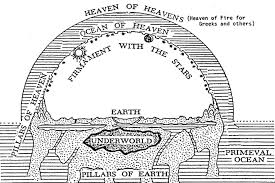Assignment grades and scores shall be calculated using ordinary academic standards of substance and relevance,including any legitimate pedagogical concerns, and shall not penalize or reward a student based on the religious content of a student's work.
This sounds self-contradictory. How is it possible to adhere to ordinary academic standards, which do not allow for the injection of faith-based beliefs, and at the same time that a student cannot be penalized for giving a religious answer in a public, secular school?
As others have noted, this infusion of religious thought into an academic setting is simply degrading the education process and introducing confusion and the loss of clarity. The West has come so far secularizing government and public education. Removing religion from these arenas made them better. This is a step back.
Also, why are we burdening our teachers with their students religious beliefs anyway? Your academic teacher doesn't care what you believe, just how much of the curriculum one has understood and can reproduce in a test or discussion. This is very different from your Sunday school teacher, who only cares what you believe.
it means that a student may say "The answer is that according to the texbook and generally accepted research dinosaurs lived in this period, even though I personally don't believe it."
As the teacher of the student, I would tell him or her that you weren't asked what you personally believed, which is not a part of the curriculum of this class. I would tell that student that people in an evolution class, for example, who learned an average amount of the science would get a C whatever their religious beliefs, those learning most of the material an A, and somebody who gave a purely religious answer with none of the science an F - and not because of what he wrote, but because of what he didn't write.
On the other hand, IMO, I foresee a potential problem arising if and when a student submits classroom work-product that has 100% religious content and no appropriate scientific content, and then whines that they spent so much time putting the religious-based product together that they didn't have time to get around to the appropriate scientific-based product.
That's an F. The test is measuring how much of the course content was mastered by the student and nothing else. The student you described could have written that religious answer before the class started at the beginning of the semester. Several moths of instruction later, he gives the same answer, one that offers no evidence that that student came to class, read, or learned anything at all. That's pretty much the definition of failing a class.
Perhaps a bigger question regarding this bill is......what exactly is the intent? Students are already free to express their religious beliefs in school, so what exactly is the point of the bill? Seems to me like it might be trying to solve a problem that doesn't exist.
My guess is it's Republican politicians pandering to a religious constituency without regard for the damage that this kind of meddling can do.
Imagine people want children to go to school and learn foolishness; answer the questions according to the script, even if they don't believe the answers are correct, just to say, they did a science.
Nobody cares if somebody "does" a science class. They care if the science was learned. In a science class, it is the religious mythology that is the foolishness, which is already offered in Sunday schools.
Here's how you identify good ideas and distinguish them from foolishness: as
@tas8831 noted, if an idea can be used to accurately anticipate outcomes, it is a keeper. If an idea can do that, we consider it knowledge and add it to our collection of ideas that work.
Evolutionary theory works. It unifies mountains of data from a multitude of sources, accurately makes predictions about what can and cannot be found in nature, provides a rational mechanism for evolution consistent with the known actions of nature, accounts for both the commonality of all life as well as biodiversity, and has had practical applications that have improved the human condition in areas like medicine and agriculture.
By contrast, its only alternative, creationism, is a sterile idea that can do none of those things. Even if it were true, it remains a useless idea. Feel free to collect useless ideas and reject useful ones based on faith rather than evidence, but that's pretty much my definition of foolishness right there.
So, one cannot become a scientist, unless they accept science dogma
They won't get a degree in science unless they master the scientific material, whether they accept it or not. They probably won't get a job as a scientist or science teacher without adequate credentials. Even with those credentials, if they want to insert an religious agenda into their work, they will find employment and funding hard to come by. I think that the Discovery Institute might still be hiring, but you'll probably still need an advanced degree from an accredited university to get one of those jobs, and that means learning material whether you believe it or not.
Gee. I didn't know my motor car ran because of a theory. LOL.
Really? You are unaware of thermodynamics and the science of engines? Here's your chance to correct that a little:
Carnot cycle and Carnot engine

